

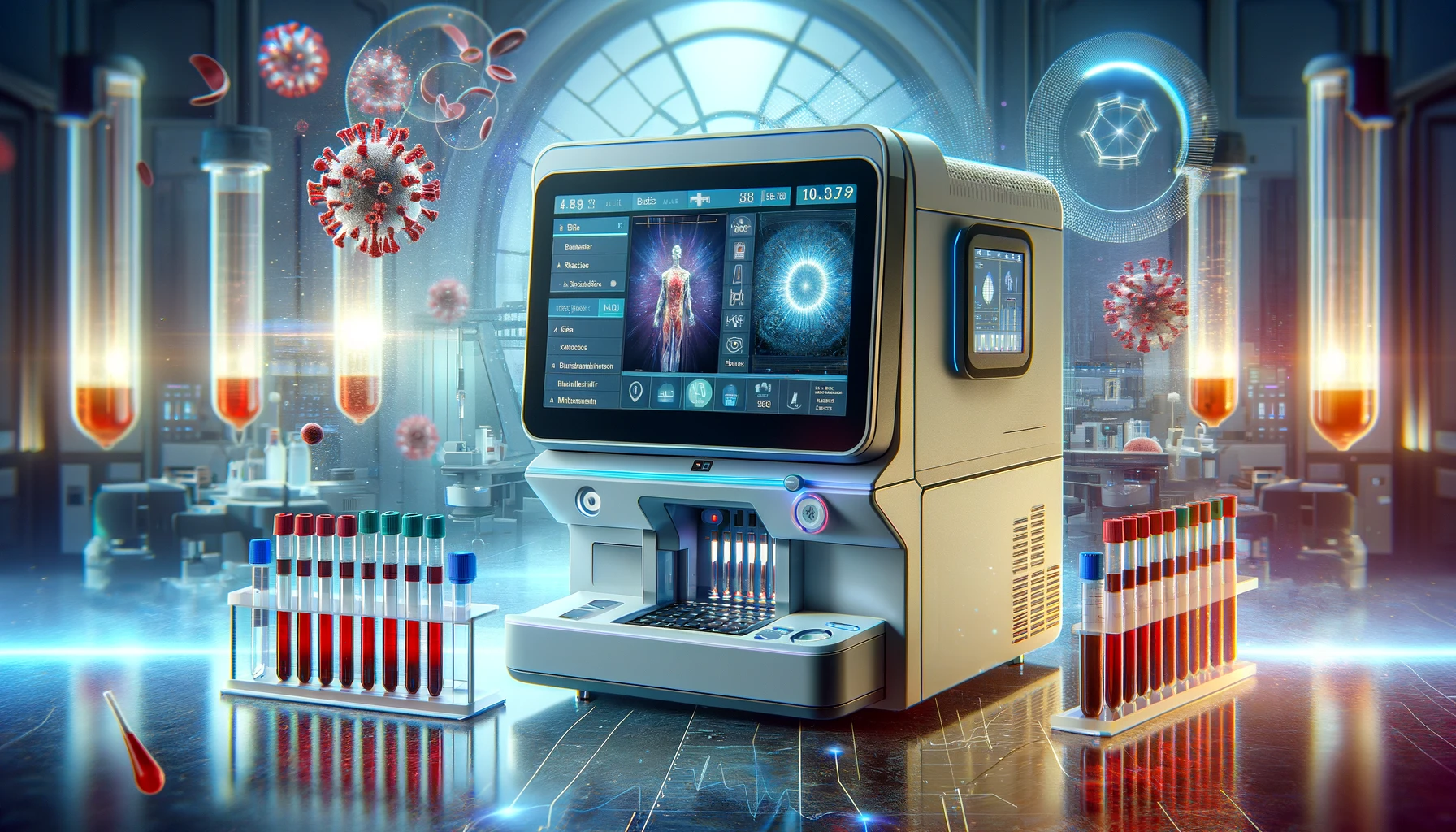
If you're ready to explore the realm of hematology analyzers but don't know where to begin, you've come to the right place! Our all-inclusive guide is here to provide you with everything you need to know about hematology analyzers, covering their functionalities and their crucial role in medical diagnostics. Whether you're a healthcare professional seeking in-depth knowledge or a business owner looking to make informed decisions, this guide has got you covered.
Hematology analyzers are technologically advanced equipment used in scientific research in laboratories and the evaluation of blood samples. These tools play an important role in hematology, the branch of medicine that concentrates on the research of blood and blood-related disorders.
By evaluating blood samples, hematology analyzers can quantify numerous blood cells consisting of red cells (erythrocytes), white cells (leukocytes), and platelets. Moreover, the advanced equipment can assess the attributes of these cells, such as dimension, form, and hemoglobin content.

Fun Fact: In the 1950s, laboratory technicians counted each individual blood cell underneath a microscope. Because of its inconsistency, this was replaced with the first hematology analyzer, engineered by Wallace H. Coulter.
The procedure of hematology analyzers involves a series of complicated steps consisting of cell counting, differentiation, and morphological analysis. These instruments utilize advanced methods such as impedance, laser light dispersing, and flow cytometry to precisely evaluate the composition of blood samples. By automating these procedures, hematology analyzers deliver fast, precise results, making it possible for professionals to make enlightened analyses and treatment choices.
Aside from cell analysis, modern analyzers are capable of spotting irregular cell populations, detecting blood disorders, and keeping track of progressing diseases. Extensive blood cell analysis helps in diagnosing conditions like anemia, leukemia, and other types of blood clotting disorders.
Hematology analyzers perform by relying on techniques that include impedance, flow cytometry, and spectrophotometry to analyze blood samples. This automates the blood cell counting process and other factors involved, producing swift and accurate results.
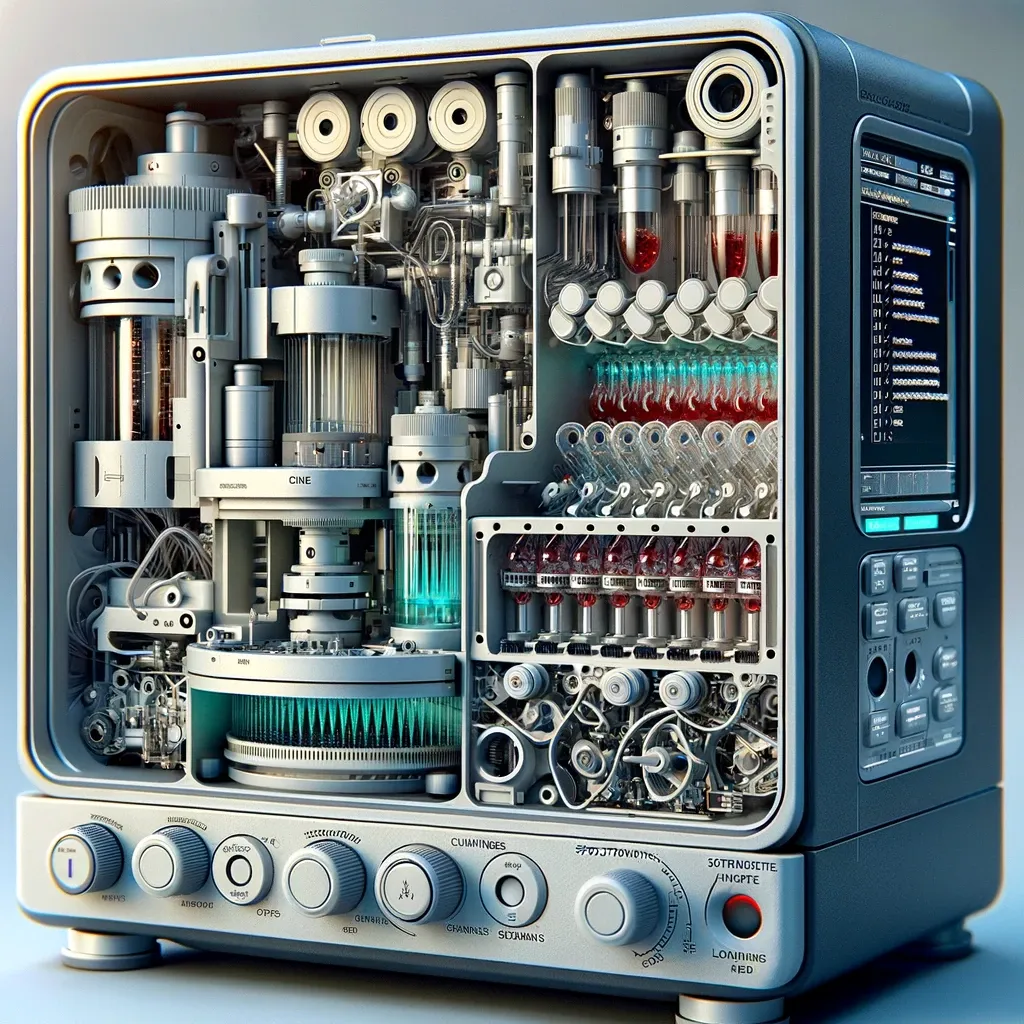
As mentioned, one of the techniques used by hematology analyzers to analyze blood cells is called “impedance measurement," which involves passing the blood sample through a narrow channel and measuring the electrical impedance as cells pass through. This allows the analyzer to differentiate between different cell types based on their size and shape, providing information on red blood cells, white blood cells, and platelets.
Flow cytometry is a process which enables the simultaneous analysis of multiple cell parameters. By labeling cells with specific fluorescent markers and passing them through a laser beam, the analyzer can quantify various properties of each cell, such as size, granularity, and antigen expression. This multiparametric approach enhances the accuracy and specificity of cell identification and characterization.
In addition, hematology analyzers integrate spectrophotometric strategies to determine the hemoglobin content of our red blood cells. By examining the absorption of light at certain wavelengths, this equipment can determine hemoglobin levels and evaluate mean cell volume and cell hemoglobin concentration.
There are all sorts of hematology analyzers, from simple handheld ones to super-fast machines that do everything by themselves. Each type has its perks, like analyzing more samples at once or being more user-friendly. Knowing the different types can help you pick the right one for your laboratory.
These are the most commonly used types in clinical laboratories due to their efficiency and accuracy in analyzing blood samples. These systems can perform a wide range of tests, including complete blood counts (CBCs), white blood cell differentials, and platelet counts. Automated analyzers often feature high throughput capacity and can process multiple samples simultaneously, making them ideal for high-volume labs.
This type of analyzer offers a middle ground between manual and fully automated systems. It requires some manual intervention for sample preparation and loading but automates the analysis and reporting processes. Semiautomated analyzers are suitable for laboratories or clinics with moderate testing volumes that may benefit from automated cell counting and differentiation.
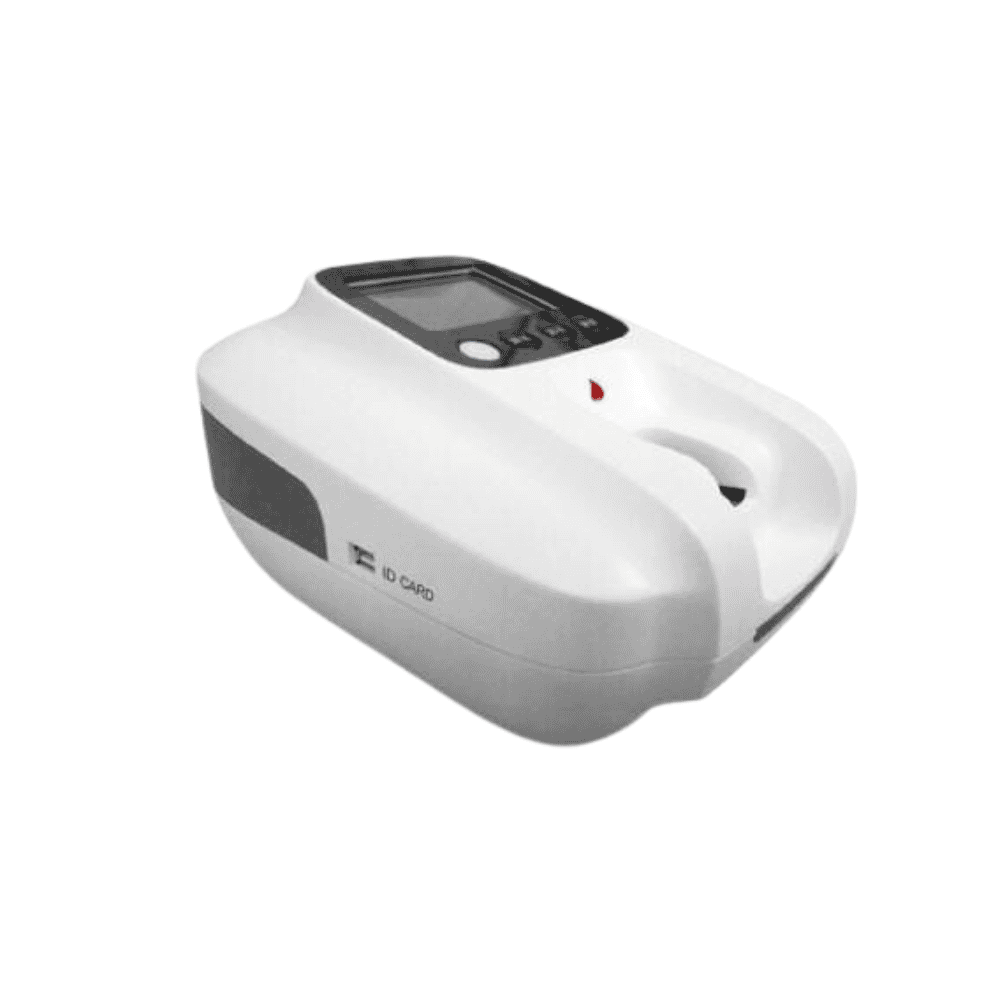
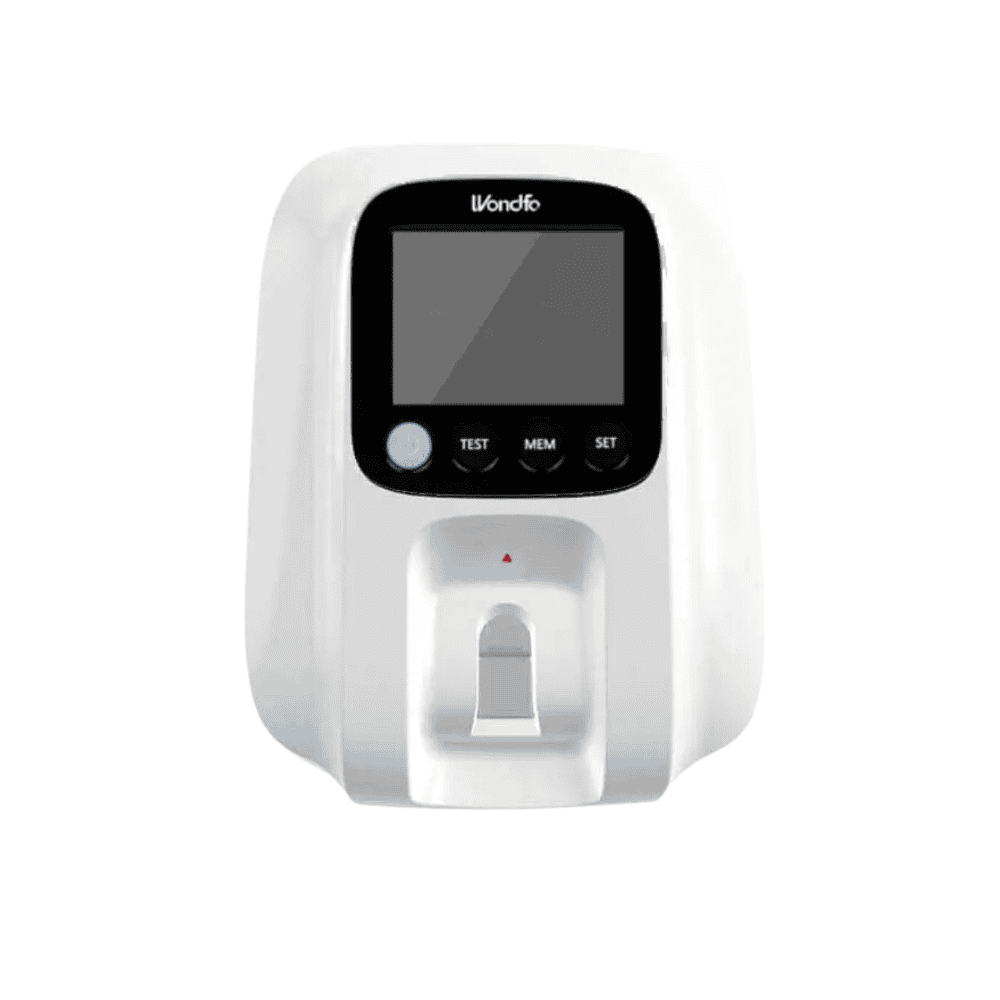
Compact or POC analyzers are portable devices designed for on-the-spot blood analysis in clinical settings, physician offices, or remote healthcare settings. These handheld analyzers provide rapid and near-patient testing capabilities, allowing for quick assessment of blood parameters without the need for sample transportation to a central laboratory. POC analyzers are particularly valuable in emergencies, primary care settings, and field-based healthcare services.
High-throughput hematology analyzers are advanced systems capable of processing a large number of samples in a short period. These analyzers are equipped with enhanced automation features, sophisticated software algorithms, and multiple analytical channels to handle a high volume of tests efficiently.
Specialized analyzers are designed to provide in-depth analyses of specific blood parameters or cell populations. These analyzers may focus on niche applications such as hemoglobinopathies, hematopoietic stem cell analysis, or coagulation studies.
This type of analyzer combines hematology testing capabilities with additional functions such as chemistry analysis, immunoassays, or coagulation testing within a single platform. These multifunctional analyzers offer a comprehensive diagnostic solution for laboratories looking to consolidate testing processes and optimize workflow efficiency.
In search of a high-quality hematology analyzer? Discover our top-of-the-line products here.
In addition to the main categories above, it's important to explore a couple more types that are gaining traction in the field:
These analyzers strike a perfect balance between compact design and robust functionality. Designed to fit on a laboratory bench, they are particularly suited for medium-sized labs or facilities with limited space. Despite their smaller footprint, benchtop analyzers don't compromise on performance, offering a range of analyses comparable to their larger counterparts. They represent an excellent option for labs looking for versatility and efficiency without the need for high-throughput capabilities.
With the advancements in portable technology, mobile hematology analyzers have emerged as a crucial tool for extending diagnostic services beyond traditional lab settings. These devices are created to be lightweight, durable, and easy to transport. Designed for use in mobile clinics, field research, and remote healthcare settings, these analyzers are invaluable tools in global health initiatives for underserved communities.
Navigating the world of hematology analyzers can feel a bit like being a kid in a candy store—exciting yet overwhelming with all the options available. So, what factors should you consider to pick the right 'sweet treat' for your lab? Here’s a streamlined guide to make your choice easier and ensure you get the most bang for your buck.
Match Your Lab’s Needs: First off, consider what you truly need. Are you a bustling hospital lab requiring high-speed, automated analyzers that can handle a heavy workload with ease? Or perhaps a smaller clinic looking for something more compact and cost-effective, yet still reliable for day-to-day tests?
Technical Specs are Key: Dive into the specifications. Look for analyzers that offer accuracy and speed without sacrificing quality. High throughput is fantastic for busy environments, but accuracy should never be compromised. Modern analyzers come with bells and whistles like advanced data management systems and integration capabilities with electronic health records (EHRs), making your life easier.
Ease of Use and Maintenance: You don’t need a machine that requires a Ph.D. to operate. User-friendliness and minimal maintenance can save you a lot of time and headaches. Also, consider the support and service offered by the manufacturer—good technical support can be a lifesaver.
Future-Proofing: Lastly, think about how adaptable the analyzer is to future advancements. Choosing a system that can be updated or expanded with new features or tests will protect your investment and ensure your lab stays on the cutting edge.
Choosing the right hematology analyzer is crucial—it impacts not just your workflow and efficiency, but ultimately, patient care. Take the time to assess your needs, do your research, and pick a partner that will grow with your practice. After all, the right choice will be the cornerstone of your diagnostic capabilities for years to come.
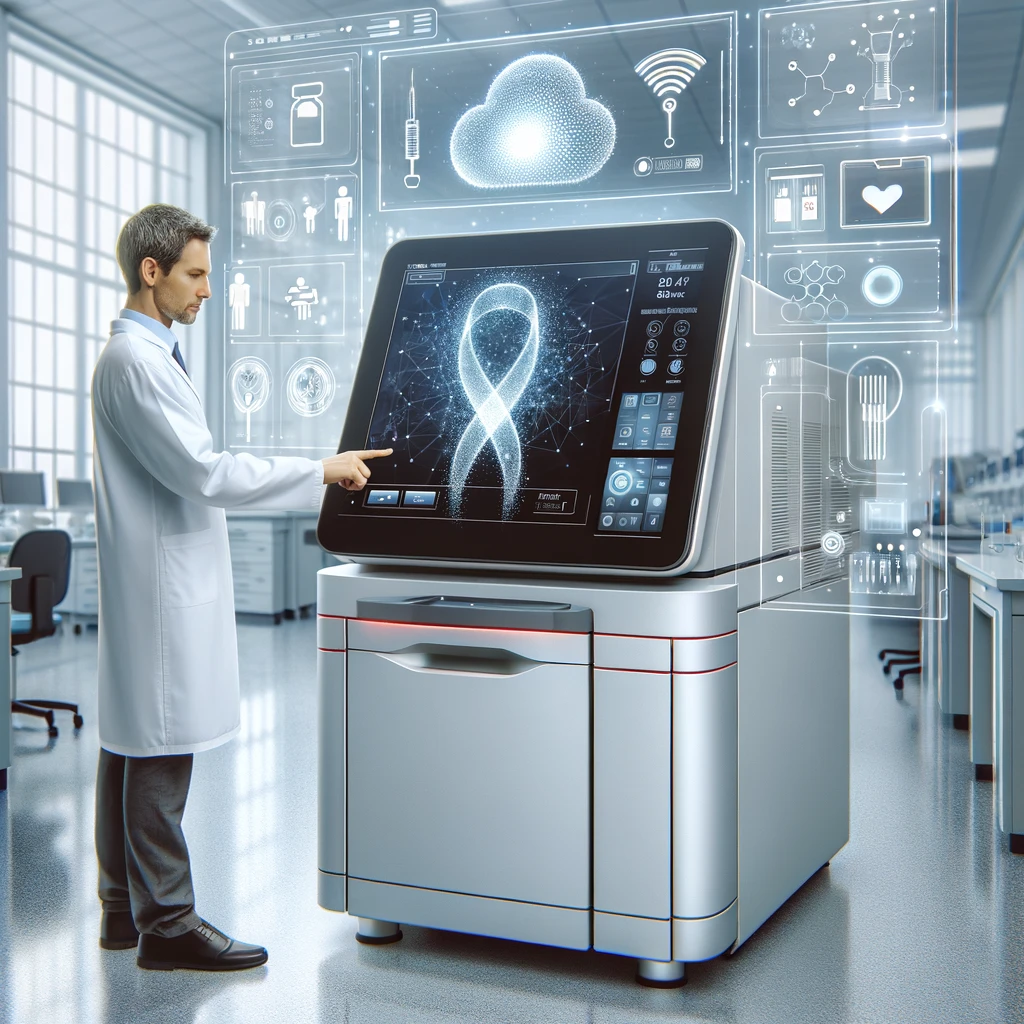
In the world of hematology analyzers, it's clear that technology doesn't just evolve; it leaps. The latest upgrades in these machines are not just about doing things faster; they're about doing them smarter and with greater precision. So, what cutting-edge features should you be on the lookout for?
Touch and Go: Modern analyzers come equipped with intuitive touchscreens, making navigation and operation as simple as using your smartphone. This user-friendly interface ensures that your team can perform complex analyses with ease and efficiency.
Connectivity is Key: In today's interconnected world, your hematology analyzer should be no exception. Look for systems with robust connectivity options, including cloud integration. This feature not only streamlines data management but also facilitates remote access to test results, enhancing collaboration among healthcare professionals.
Automation and Artificial Intelligence: The integration of AI and automation in hematology analyzers is transforming diagnostics. These technologies offer sophisticated analysis capabilities, from identifying rare cell populations to predicting trends in blood data. This means quicker, more accurate diagnoses and the ability to tailor patient care like never before.
How do you keep your analyzer in top shape? Here are some easy maintenance tips:
Stay updated with software: Like your smartphone needs updates, your lab equipment does too! Keep your analyzer's software current with the latest features and bug fixes for top performance.
Clean regularly: Wipe down surfaces and clean probes and pathways to keep things spick-and-span for accurate results.
Check and calibrate: Like tuning a guitar, calibration ensures your analyzer's measurements are spot-on. Regular checks help catch issues early and keep everything running smoothly.
Preventive Care: Think of it like taking your car for regular check-ups. Preventive maintenance checks help catch problems before they cause breakdowns, ensuring your analyzer stays reliable.
Need expert care for your laboratory equipment? Contact us now for dedicated support when you need it most.
Document and Train: Keep records of maintenance and service activities. Documentation helps track the analyzer's history, while training your team on maintenance procedures ensures everyone is on the same page.
Provider Support: Just like contacting customer service when you need help, stay in touch with your provider for technical support and service contracts. They can provide expert advice, training, and services to keep your analyzer in tip-top shape.
Taking care of your hematology analyzer is crucial to keeping it running smoothly. By following these simple maintenance tips, you can ensure your equipment remains reliable at all times for better patient care.
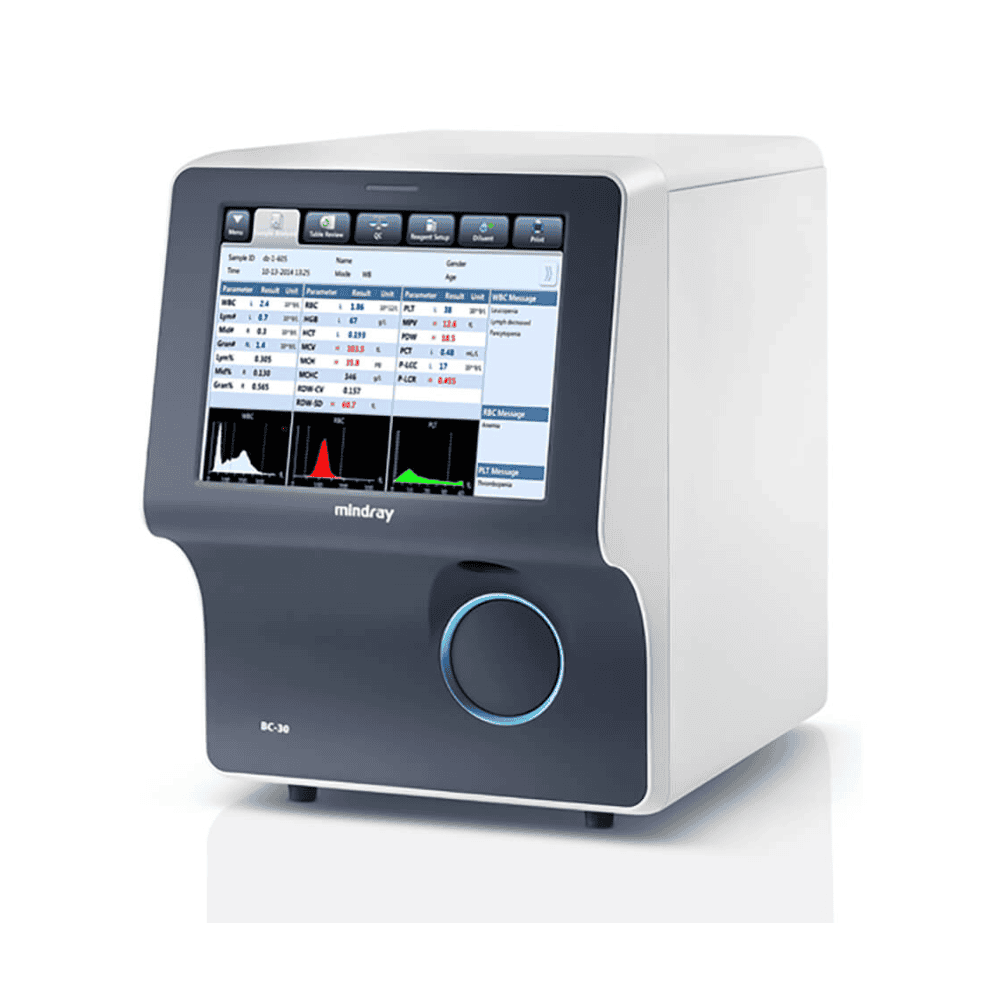
The future of hematology analyzers is super exciting, with things like smart AI, portable versions, and testing in remote places. These new trends are bringing blood analysis to the next level. Looking ahead to the future can show how this powerhouse equipment is changing the game in healthcare.
Moreover, the push towards green technology reflects a commitment to sustainability, crucial for our planet and our practices. The goal? To ensure that cutting-edge diagnostic tools are accessible, efficient, and environmentally responsible, opening doors to improved healthcare outcomes worldwide.
Mastering hematology analyzers is essential for healthcare professionals seeking to deliver high-quality diagnostic services in today's dynamic healthcare landscape. By understanding the principles of operation, evaluating key features, and staying informed about emerging trends, laboratories can harness the full potential of these instruments and drive innovation in medical diagnostics.
Embracing these technological innovations means we can look forward to not only enhancing operational efficiency but also elevating the standard of patient care. Let's remain engaged, informed, and ready to integrate these exciting developments into our practices, all while keeping patient well-being at the forefront of our endeavors.
Let us help you with your laboratory setup. Talk to us today.